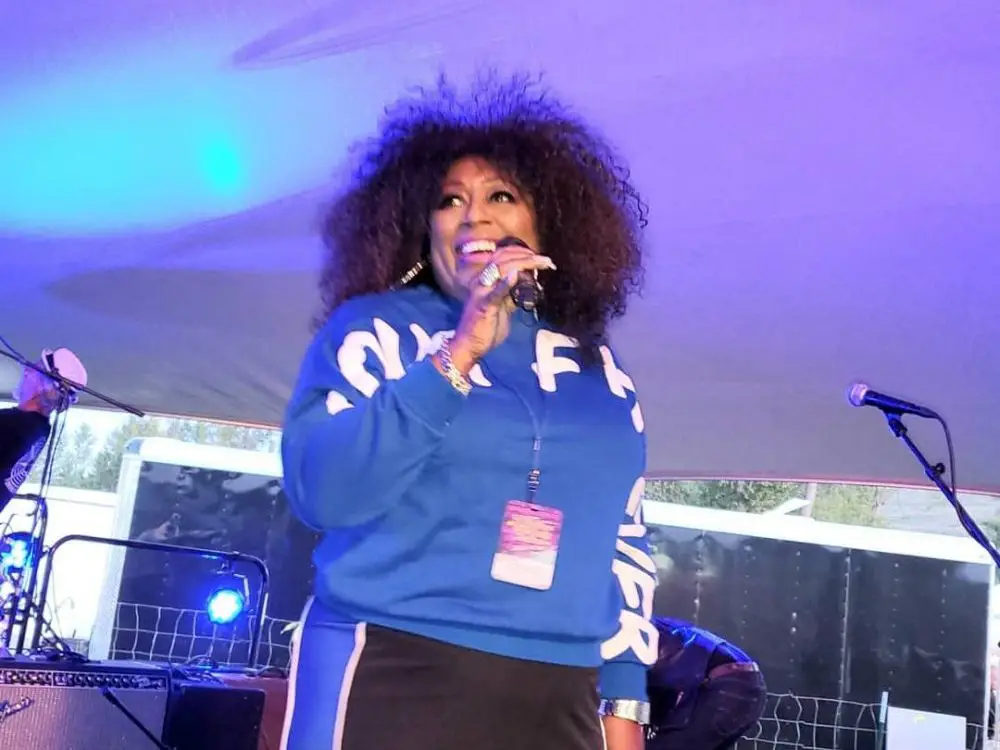In elementary school, it might have been annoying to share the same name with a classmate, but imagine having to share a name in the music industry. There’s only one Beyoncé, one Beatles and one Black Eyed Peas for a reason: Acts don’t share the same name. But Lady Antebellum — or should I say Lady A — is hoping to change that.
In light of the racial injustice that is infecting the country, Lady Antebellum wanted to show support for racial equality. They came to the realization that their long-used band name, “Lady Antebellum,” which references the period of history before the Civil War, has strong connotations with slavery. Realizing this nearly 14 years later, they decided to cut ties with the name and shorten it to “Lady A.”
But they didn’t realize another Lady A already existed.
“We are deeply sorry for the hurt this has caused … ”
The band made a statement on social media to express their reasoning: “We are regretful and embarrassed to say that we did not take into account the associations that weigh down this word referring to the period of history before The Civil War, which includes slavery. We are deeply sorry for the hurt this has caused and for anyone who has felt unsafe, unseen or unvalued. Causing pain was never our hearts’ intention, but it doesn’t change the fact that indeed, it did just that. So today, we speak up and make a change.”
The newly dubbed Lady A expressed that their former name just seemed to fit 14 years ago. The name was inspired by the antebellum-style home where they took their first photos, and it was a reminder of the Southern music that influenced them.
The new Lady A may have done their research on the history of antebellum days, but they forgot to do their research on the name Lady A.
“This is my life. Lady A is my brand … ”
Before the band members of Lady Antebellum stepped onto the scene, Anita White, a 62-year-old blues singer, had been using the name for more than 20 years. And she intends to keep using it.
In an interview with Rolling Stone, White — the original Lady A — expressed her frustrations over the name that she spent 20 years building being stolen right from under her. “This is my life,” she said. “Lady A is my brand, I’ve used it for over 20 years, and I’m proud of what I’ve done.”
White points out the irony of Lady Antebellum changing their name to something less racist, while their new name steals from a Black woman. “They’re using the name because of a Black Lives Matter incident that, for them, is just a moment in time. If it mattered, it would have mattered to them before. It shouldn’t have taken George Floyd to die for them to realize that their name had a slave reference to it.”
As if it couldn’t get any worse than White’s name being stolen, Lady Antebellum plans to sue her so they can share the name, or as they put it, coexist. It means that everything White has worked for is at stake.
White didn’t oppose sharing the name; in fact, she even came up with a few ideas that would make coexistence bearable.
When she got on a call with the members of Lady Antebellum, she suggested that they be referred to as Lady A the Band, while she would be known as Lady A the Artist. As White told Rolling Stone, the band didn’t address her suggestion. White expressed that she could change her name, but she didn’t want to; she wanted to keep it.
And as far as coexisting with the exact same name as the band, she doesn’t see that happening. But what is happening is a possible documentary and collaboration.
In hopes of making the situation better, Lady Antebellum suggested Lady A come to Nashville and record a collaboration and even do a documentary on allyship.
Though these nice gestures are baby steps toward a favorable conclusion, White still has her doubts. “I still didn’t think coexistence could work. I said that from the beginning and I’ll never change my view on that.”
Both Lady A’s are persistent and on a mission.
So what is the issue with all of this?
The problem is that Lady Antebellum has hijacked Lady A’s presence, identity and brand.
Although Lady Antebellum meant well with their name change, their actions have been far from helpful. Due to their large following and successful music history, their faces have already dominated Google searches for “Lady A.”
When you type “Lady A” in Google, the first thing that pops up is Lady Antebellum. Their faces flood Google Images, while there are just a few images of the same headshot of Anita White. On other platforms, such as Twitter and Instagram, the new Lady A pops up, and because their account is verified, they come up first.
As stated, the new Lady A aims to show their support for racial equality and shed the racist connotations of “antebellum,” but does the new name actually do that?
Not really.
Shortening “Lady Antebellum” to “Lady A” doesn’t change the connotation; the “A” still stands for “Antebellum.” “Lady A” is effectively a nickname for “Lady Antebellum.”
If Lady Antebellum truly wanted to spotlight their allyship with Black Lives Matter, their name should have changed completely. Shortening it only acts as a dry-erase marker; it isn’t permanent.
If the genuine reason for the name change was to stand in solidarity and prevent any further harm to people that the name may have offended, then this fight for a name that was not theirs in the first place doesn’t make sense.
Rather than sticking to their original statement of intent, Lady Antebellum’s actions have become contradictory. If the main goal was to show support, then the new Lady A has done the complete opposite. They’re not only hurting Anita White in this battle, but continuing to risk hurting themselves.
















